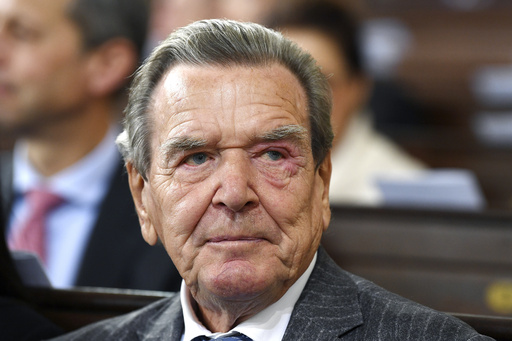
GERMANY — Former Chancellor Gerhard Schröder has been admitted to the hospital due to severe burnout, according to reports from the German news agency dpa on Tuesday. The situation underscores the former leader’s ongoing struggles amidst significant criticism for his connections with Russia.
Schröder, who served as the head of Germany from 1998 to 2005, was at the helm of the Social Democratic Party, which is currently led by Chancellor Olaf Scholz, from 1999 until 2004. Over recent years, he has attracted considerable scrutiny due to his involvement with state-owned Russian energy corporations and his hesitance to publicly distance himself from President Vladimir Putin following Russia’s invasion of Ukraine. His longstanding ties with Putin have notably strained his relationships within the German political sphere.
As per a medical report cited by dpa, the 80-year-old politician is displaying symptoms consistent with severe burnout syndrome, which includes extreme fatigue, a lack of energy, as well as issues with focus and memory, alongside sleep disturbances. His attorney, Hans-Peter Huber, has confirmed that Schröder is currently undergoing clinical treatment as recommended by his physician.
Burnout, as defined by the World Health Organization, is described as a syndrome resulting from chronic stress in the workplace that has not been effectively addressed. The ex-chancellor’s health issues have impacted his participation in crucial political inquiries. Last month, he was scheduled to testify before a parliamentary committee in Mecklenburg-Western Pomerania regarding the controversial Nord Stream 2 gas pipeline project, which he chaired. However, he was unable to attend due to health concerns.
Notably, the Nord Stream 2 pipeline never became operational and was subsequently damaged in a series of underwater explosions in the Baltic Sea in September 2022. Schröder’s health situation and political controversies continue to be a topic of discussion in Germany as attention turns to the implications of his historic leadership and ongoing ties to Russian interests.

